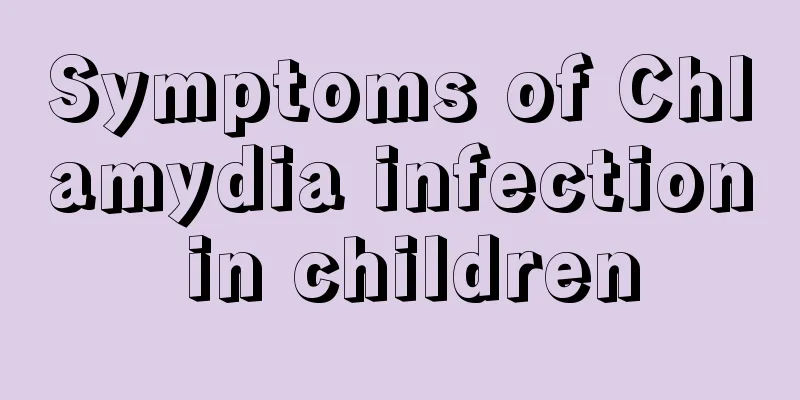What is the cause of a sudden fever in a child?

|
It is a common situation for parents that their children suddenly have a fever. At this time, parents must be very worried about their children's condition and want to know what disease the child has suddenly had a fever so that they can take corresponding treatment measures. So what disease causes a child’s sudden fever? Next, this article will introduce relevant content in this regard for your reference only. What disease causes a child to suddenly have a fever? Fever is a defensive manifestation of the body against bacteria and viruses. If your baby has other symptoms when he has a fever, you should pay attention to check whether it is caused by influenza, cold, gastroenteritis, ear infection, roseola infantum, pneumonia, urinary tract infection, hand, foot and mouth disease and other diseases. 1. Influenza Cold symptoms are severe, runny nose, cough, diarrhea, vomiting, poor appetite, irritability, and sudden fever, usually above 38.3℃. Common in winter and spring. 2. Cold If you have a runny nose, it will probably turn into thick gray, yellow or green mucus after about a week, and you may have a cough or a low-grade fever. After the fever subsides, your baby may play and eat normally. If this is not the case, there may be a problem more serious than a cold. 3. Gastroenteritis Fever may be the first symptom, followed by nausea, cramps, chills, vomiting, or diarrhea. 4. Ear infection Irritability, crying, pulling ears, fever, body temperature over 37.8℃, vomiting, diarrhea, and loss of appetite may occur. In extremely rare cases, yellow or white fluid may come out of the ear. Most common after a cold. 5. Roseola infantum The fever usually exceeds 39°C and lasts for 3 to 5 days. It may be preceded or accompanied by a runny nose. Then a red rash breaks out, spreading to the neck, face, and arms. Children aged 6 months to 3 years are most likely to develop the disease. 6. Pneumonia The cold seems to be getting worse, with a persistent cough, rapid and labored breathing, fever, and chills. 7. Urinary tract infection Temperamental irritability may show some signs of painful urination, cloudy, bloody or foul-smelling urine. Sometimes vomiting or diarrhea may occur. There is usually a fever, and sometimes no other symptoms. 8. Hand, foot and mouth disease Small blisters, such as in the mouth, on the palms of the hands, and/or the soles of the feet (and possibly on the buttocks). Low-grade fever, sore throat, and loss of appetite. It is most common in children aged four or five, but it can occur in babies of any age. In short, there are many diseases that can cause children to suddenly have a fever, and the most common ones are the ones introduced above. Therefore, parents must pay attention to some symptoms that appear when their children suddenly have a fever, and be careful to distinguish them. These symptoms can help us determine what disease causes the child's sudden fever, so that we can identify the condition in time and provide symptomatic treatment. |
<<: What are the treatments for complications of myocardial infarction?
>>: What should I do if my child loses a tooth?
Recommend
Children's brain is not fully developed
Brain dysplasia is a relatively harmful pediatric...
What to do if your 1-year-old child has diarrhea
Pediatric diarrhea is a common pediatric disease ...
What causes tinnitus and hearing loss in children?
Hearing loss and tinnitus are common ear problems...
What to do if baby has BCG abscesses
Some babies need to be injected with BCG vaccine ...
Why do children grind their teeth at night?
Many children have some bad living habits, and so...
Tips for hydrating your baby
If parents want to reduce the chance of their bab...
What are the symptoms of acute dermatitis in children?
When children are young, their skin is more delic...
Introduction to baby fever and cold hands and feet
When a baby has a fever and has cold hands and fe...
Does adequate sleep help babies grow taller?
Babies need a lot of nutrition during their growt...
What are the symptoms of purpura in children
Purpura is a very scary skin disease, which is ma...
What are the developmental indicators of thirteen-month-old babies?
When the baby is 13 months old, many parents pay ...
How to take children's vitamins
Many of our children now suffer from vitamin defi...
What should I do if my child has inflammation and repeated fever?
In our lives, there are some diseases that occur ...
What should I do if my child is rebellious?
For most parents, children's rebelliousness i...
What is pneumonia in babies?
Nowadays, every child is the treasure of the fami...









